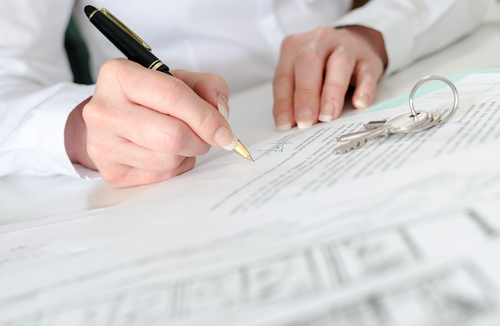Getting approved for a mortgage loan isn’t as simple as getting approved for an apartment. Some landlords don’t care about credit history, and they may only ask for a tenant’s most recent paycheck stub. Buying a house is a more complex, formal process.
A mortgage is a 30-year commitment, and understandably, lenders have to be absolutely confident in a borrower’s ability to afford the mortgage payments. In addition to your credit report, the bank will require several pieces of documentation before approving your loan.
-
Proof of Employment and Income
Qualifying for a mortgage generally requires 24 months of consecutive employment with the same company or within the same field. The lender will need copies of your W-2 forms from the past two years, as well as your most recent paycheck stubs to verify your current employment and income. Some lenders go further and also request a letter from your employer. You must be able to document any income you want the lender to consider during the application process. This includes income from child support, alimony and other sources.
-
Tax Returns
It’s tougher to get a mortgage when you’re self-employed. You have to document your income and prove that your business is profitable. The lender will need to see your complete tax returns from the past two years, plus a year-to-date profit and loss statement. The underwriter not only evaluates your business income, but also your business expenses or write-offs.
Keep in mind that too many business write-offs can work against you. Instead of using your total income, lenders use your adjusted gross income (which is income after write-offs) to determine how much house you can afford.
-
Information on Cash Reserves and Other Assets
Buying a house involves a down payment and closing costs, and lenders will check to make sure you have funds on hand for mortgage-related expenses before approving your application. Some lenders even require applicants to maintain a cash reserve after closing on the mortgage. To verify funds, the lender needs copies of all your bank account statements and information on other assets, such as rental properties you may own or other investments.
If you don’t have enough assets, the lender will need information on how you plan to pay these expenses. The bank will not allow you to borrow funds toward your down payment, but you can use a grant or a gift from a relative or friend. If you’re receiving a gift, the donor has to write a gift letter to your lender.








